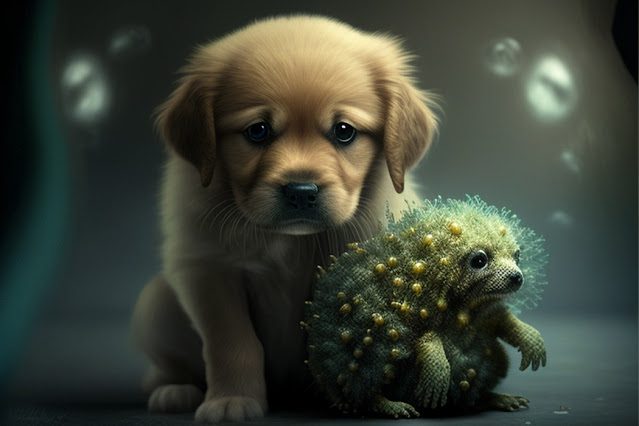Canine parvovirus (CPV), commonly known as “parvo,” is a highly contagious and potentially deadly virus that affects dogs. It is primarily spread through feces, and can be transmitted through direct contact with infected feces, as well as through contact with contaminated surfaces or objects.
Here is a report on how dogs get parvo:
The parvovirus is a small, hardy virus that can survive for long periods of time in the environment. It is resistant to many common disinfectants and can remain infectious on surfaces for up to a year. This makes it easy for the virus to spread from one infected dog to another.
One of the most common ways for dogs to get parvo is through contact with infected feces. Dogs can become infected by sniffing, licking, or coming into contact with contaminated surfaces or objects. The virus can also be transmitted through contaminated food or water bowls, toys, or bedding.
Another way that dogs can get parvo is through contact with an infected dog. The virus is highly contagious and can be transmitted through direct contact with an infected dog’s feces or through the air when an infected dog coughs or sneezes.
Puppies are especially at risk of getting parvo because their immune systems are not fully developed. Puppies that are not fully vaccinated are also more susceptible to getting parvo. It is important to follow a vaccination schedule recommended by a veterinarian to help protect puppies against parvo and other infectious diseases.
There are several risk factors that can increase the chances of a dog getting parvo, including:
- Lack of vaccination: Dogs that are not fully vaccinated are at a higher risk of getting parvo.
- Age: Puppies and young dogs are more susceptible to parvo than adult dogs because their immune systems are not fully developed.
- Poor hygiene: Dogs that live in unsanitary conditions or that come into contact with contaminated surfaces or objects are at a higher risk of getting parvo.
- Stress: Dogs that are under a lot of stress, such as those that are in shelters or boarding facilities, may be more susceptible to getting parvo.
Parvo can be difficult to diagnose because the symptoms can be similar to other diseases. Symptoms of parvo can include vomiting, diarrhea (often bloody), lethargy, fever, and loss of appetite. If you suspect that your dog may have parvo, it is important to contact a veterinarian immediately.
Treatment for parvo typically involves hospitalization and supportive care, such as fluids to prevent dehydration, medications to control vomiting and diarrhea, and antibiotics to prevent secondary infections. The prognosis for dogs with parvo can vary depending on the severity of the infection and how quickly treatment is started.
To prevent the spread of parvo, it is important to practice good hygiene and to follow a vaccination schedule recommended by a veterinarian. This can help protect your dog against parvo and other infectious diseases.
There are a few additional things to consider when it comes to preventing and controlling the spread of parvo:
- Keep your dog up to date on vaccinations: The parvovirus vaccine is typically given as part of a series of shots to puppies at around 6, 8, and 12 weeks of age, followed by booster shots every 1-3 years. It is important to follow a vaccination schedule recommended by a veterinarian to help protect your dog against parvo and other infectious diseases.
- Practice good hygiene: To help prevent the spread of parvo, it is important to practice good hygiene, including washing your hands thoroughly after handling your dog or any potentially contaminated objects and regularly cleaning and disinfecting surfaces and objects that your dog comes into contact with.
- Avoid exposing your dog to potentially infected dogs or areas: If you suspect that an area or a dog may be infected with parvo, it is important to avoid exposing your dog to those areas or dogs. This can help prevent your dog from getting infected with the virus.
- Keep your dog away from wild animals: Wild animals, such as raccoons, can carry and shed the parvovirus, so it is important to keep your dog away from wild animals and to properly dispose of any feces that your dog may come into contact with.
By following these precautions, you can help protect your dog against parvo and reduce the risk of the virus spreading to other dogs. If you have any concerns about your dog’s health or the risk of parvo, it is important to consult with a veterinarian.
